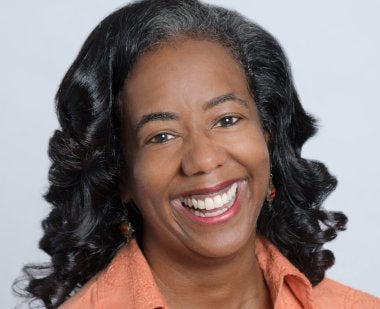

New Study Examines Expectations of Black Women in College

A recent study examines the expectations and stereotypes that Black women face at colleges and universities in the United States. The study, co-authored by Bridget Turner Kelly, a University of Maryland associate professor, identifies a need for diverse support structures for Black women at educational institutions, particularly at predominantly white institutions (PWIs).
“Black women have historically been marginalized both for their race and gender, which led us to look at the intersectionality of race and gender at predominantly white institutions,” Dr. Kelly says.
Dr. Kelly, along with colleagues from Tulane University, the University of Wisconsin-Madison and the University of Madison-Whitewater interviewed Black women alumnae who attended historically Black colleges or PWIs and then analyzed the women’s life stories. The study, published in the American Educational Research Journal in September 2018, was led by Rachelle Winkle-Wagner, an associate professor at UW-Madison’s School of Education. The researchers drew on narratives from 26 women, and focused on four women whose stories were particularly representative of Black women students at PWIs.
The study revealed that the women, who graduated between 1969 and 2012, endured a variety of expectations and stereotypes during their time as students, including assumptions that Black women were not intellectually capable of succeeding in college and could not be leaders, among other stereotypes. The women faced stereotypes from their peers, faculty and families.
“We found that these Black women alumnae, when they were college students, had stereotypes placed upon them from their peers, including by White students, as well as other Black students and other Students of Color,” Dr. Kelly says. “They also dealt with this issue with faculty and family in terms of stereotypical assumptions as to what people thought it meant to be a Black woman.”
For instance, Faygen, one of the four women profiled in-depth, who graduated from a rigorous design-based program while also in a scholarship program designed to support Students of Color, managed expectations put on her by the program administrators to participate in cocurricular cultural activities with other Students of Color.
“When she was spending all of her time in the design studio in order to keep up her grades to keep the scholarship, it was seen [by others] as that she’s not participating and that she doesn’t really want to connect with other Black students—because she’s not hanging out or at the social activities where [scholarship recipients] are supposed to be,” Dr. Kelly says.
Another Black woman alumnae, Vivian, a 2009 biology major graduate, felt pressure to constantly prove her academic capability as a Black woman in the sciences, a feeling likely perpetuated by campus staff telling her to consider other career choices because she would not “make it” in the sciences. Vivian also faced stereotyping in her cocurricular cheerleading activities, in which she second-guessed whether as a Black woman it was appropriate for her to try out for the cheerleading squad. She became the first Black cheerleader at the institution and later brought other Black women to the squad.
Despite the obstacles, Faygen, Vivian, and the other women resisted the stereotypes thrust on them and persevered, finding what the study describes as their “authentic selves.”
“Even though they had some challenges, they were able to overcome those,” Dr. Kelly says.
The women’s stories highlight the varied experiences of Black women students in higher education. Dr. Kelly hopes that the research will help drive institutional changes that offer services and programs better catered to the individual needs of Black students.
“We need to break apart this homogeneous look at Black students as if they’re a monolithic group that have similar experiences, and we need to do more intersectional research that really helps us hone in on what’s going on for different types of Black students,” Dr. Kelly says.
Dr. Kelly is an associate professor in the Department of Counseling, Higher Education, and Special Education. Her research interests include issues related to women faculty and socially just education.



